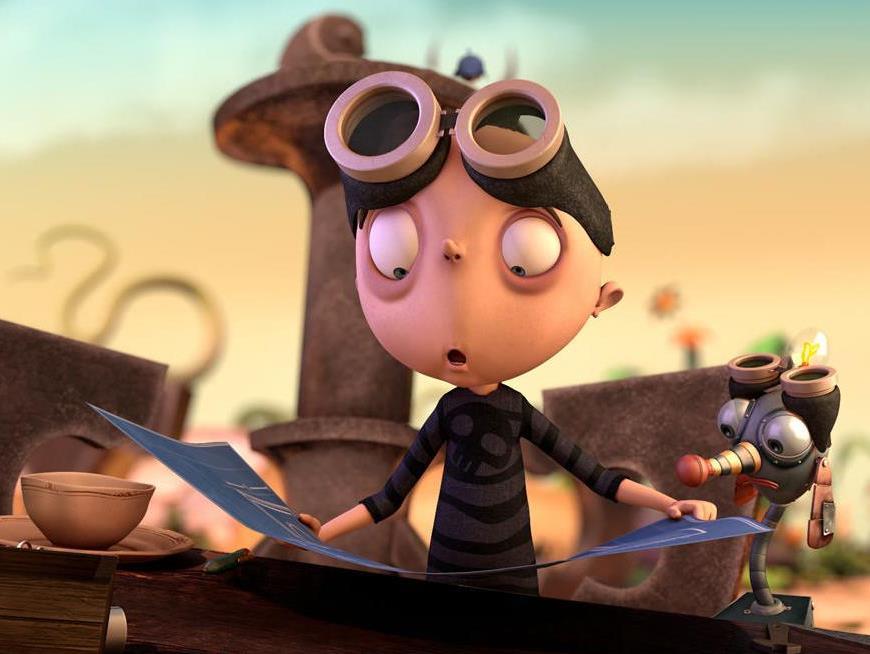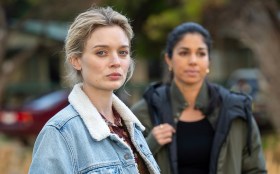Australian politicians still can’t work out what to do with the screen sector. Image: Figaro Pho via Screen Australia.
The current budget rumours capped an uneasy week for the screen sector in the corridors of power. The government has been making positive noises about supporting small business, which means that the Export Development Corporation may be getting an extra $60m. And screen is an assiduous export industry.
Deloitte has done a report on efficiencies in the ABC and SBS which is now with the respective boards. Cynics will say this trick comes round regularly and non-TV accountants are good at misunderstanding production. The rumour here is that the ABC is being told to reduce its commitment to lifestyle programs, though this may just be an attempt to bring them inside for cost reasons. But the commercial networks continually claim that the government broadcasters are eating their lunch by actually entertaining people, so this strategy may be a real act of malice.
There is supposed to be a $4b surplus in the offing; it is possible that some of that could come to the ABC or SBS. Expect that to be targeted and aimed at the kiddies.
Now, back to the glums we really do know about from earlier in the week.
On Monday the Senate Report into Australian content on broadcast, radio and streaming services was published in the lead up both to the budget and the next election. It was a loaded panel, led by the Greens Senator Hansen-Young, with three ALP members, a Deputy-Chair from the Liberal Party, and one Nationals senator.
It is the latest move in the relentless lobbying campaign by the screen sector. Again and again the campaigners are rubbed behind the ears, given a piece of lettuce and soothed with platitudes. They are told everyone agrees with them but Treasury is full of Trolls from Planet Sadism who suck the marrow from the bones of idealists at Friday night drinks.
The issues have been duck-shoved into enquiries – eight in the last twenty years and we are not even including the probes into the government broadcasters. Now the government does not bother to respond. The review into children’s television started one year and ten months ago and has still not been released.
This report also fails to reach a consensus. That would have required a portion of the ALP to nail a flag to the mast. It does a pretty good job of outlining the various policy positions. But there is a lot of friendly woofing, and not a single recommendation. Not one.So the Greens and the ALP have produced additional comments appended to the report. They are instructive.
The Greens Position
The Greens position on quotas deserves to be quoted as it summarises the whole argument.
‘1.3 Australia’s commercial free-to-air and subscription television broadcasters are subject to a range of content quota obligations under the Broadcasting Services Act 1992 (BSA). These include requirements regarding children’s, and Australian content.
1.4 Quotas serve to ensure the delivery of quality content that reflects and informs our sense of national identity, and encourages and supports the domestic screen industry through sustained and regular employment opportunities.
1.5 Commercial broadcasters described content obligations, particularly in relation to children’s content as onerous and anachronistic, and argued that content quotas should be altered or removed. Commercial broadcasters argued that children are choosing to watch shows such as The Bachelor, Ninja Warrior, and Masterchef rather than specifically designated children’s television.
1.6 The Australian Greens strongly rejects calls to reduce current content obligations. Children’s television contributes to the cognitive, emotional and creative development of young people and it is crucial that Australian children grow up with a strong sense of identity that reflects our culture and values. The Australian Greens accept that while children may watch shows such as The Bachelor, these shows are not children’s content, and should not be considered as such.
1.7 Further, children’s television is an important component of Australia’s screen industry, providing employment opportunities for thousands of people, and indeed, providing a training ground for cast and crew. The Australian Greens were concerned to hear that without a children’s content quota obligation, commercial broadcasters would simply stop investing in the production of such material. Such a move would have a devastating impact on the industry, both reducing work opportunities, and jeopardising the future of the industry.
1.8 While we accept that commercial broadcasters find it difficult to monetise children’s television, it should be highlighted that broadcasters occupy a privileged position in regards to access to public spectrum, and protection from competition. It is entirely reasonable for the Australian public to expect commercial broadcasters to make a contribution in return for such a position.
1.9 Commercial broadcasters also argued that the definitions included in the Australian drama content quotas require amendment. Suggestions include: broadening the definition of drama to include reality television; and altering the meaning of ‘first release’ to allow for shows to be counted as first-release for free-to-air if it has been shown on subscription television. The Australian Greens are of the view that these changes would have negative consequences for the screen industry, including a reduction in the amount of Australian drama content commissioned.’
So the Greens believe that ‘the content quota system be maintained to ensure the production of uniquely Australian content, and children’s television.’
There should be ‘at least a 10 per cent expenditure, and a separate promotion, obligation on SVOD services operating in Australia.’
Australian producers should be protected by a ‘UK-style Terms of Trade provisions to address the oligopsonic market conditions which currently exist.’
There should be a single Producer Offset of 40%, which should ‘only be available to production companies which do not also hold a broadcasting licence to ensure the future of Australia’s independent production sector.’
The 65-hour cap on series receiving the Offset should be abandoned. NZ shows should not be counted as Australian.
The Location Offset should be raised to 30% and decoupled from the PDV Offset so companies can get both.
And finally, ‘The Australian Greens recommend that the Location and PDV offsets be platform-neutral in their eligibility criteria, allowing SVOD services to access such incentives without disadvantaging the film and television industry.’
The Australian Labor Party
The ALP Senators note the previous enquiries and acknowledge its own Convergence Review. It wants the Children’s Content Review to be released after a year of putting it behind the sofa. Ditto the response to the House of Representatives enquiry into Factors contributing to the growth and sustainability of the Australian film and television industry, which was at least tabled.
It wants appropriate quotas and the right mix of tax incentives. It thanks everybody.
The objections? All the proposals from the Greens should be considered in context or we might not get it right. We need a round of consultations.
Every single enquiry and public hearing round has seen SPA and the Guilds put a considered, unified and basically unwavering position. The commercial broadcasters have changed more, but only to become more specific and hostile about its burdens. There is no possible consensus. Beyond the common idea that presenters to enquiries should wear clothes and be allowed to breathe, there is no agreement.
And the ALP, rather than agree to something and make common cause with the industry it has mingled with so many times, wants to
Undertake public consultation on options to break the current impasse, cast the policy and regulatory net widely and ensure modernisation of the framework on a holistic and evidence-based footing to avoid negative unintended consequences.
They don’t want to fight an election campaign on such arcane issues, and they certainly don’t want to antagonise the commercial broadcasters unless they can extract clear political benefit. A fight with Netflix would be a diversion.
But calling for more consultation before creating a 40/40 tax regime or protecting children’s television is just plain sad.





